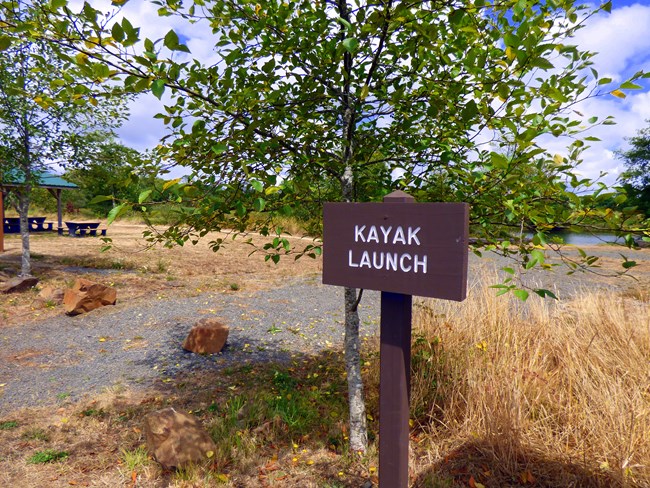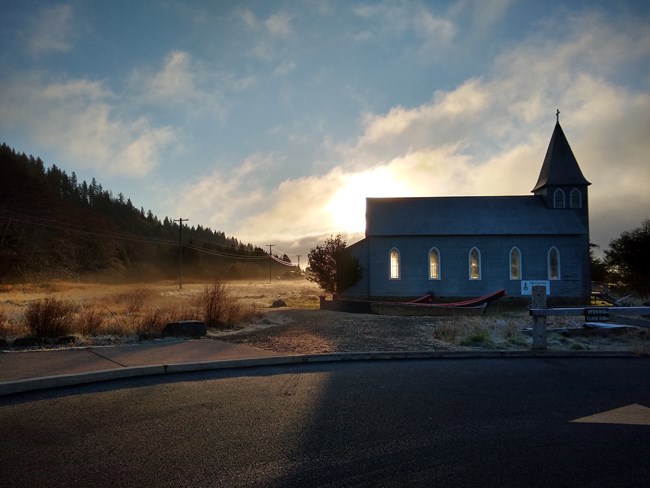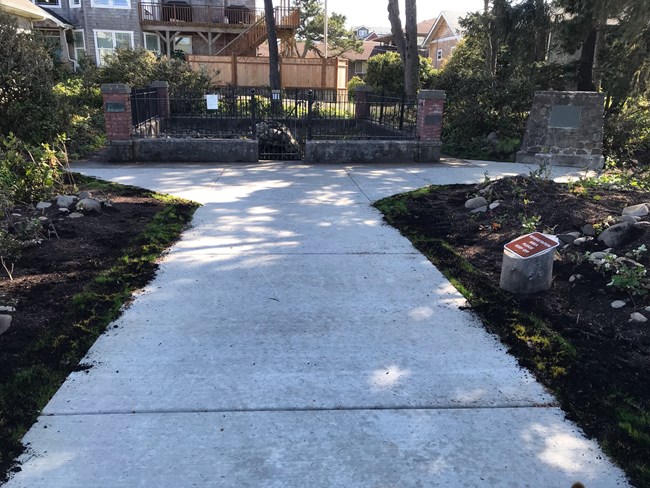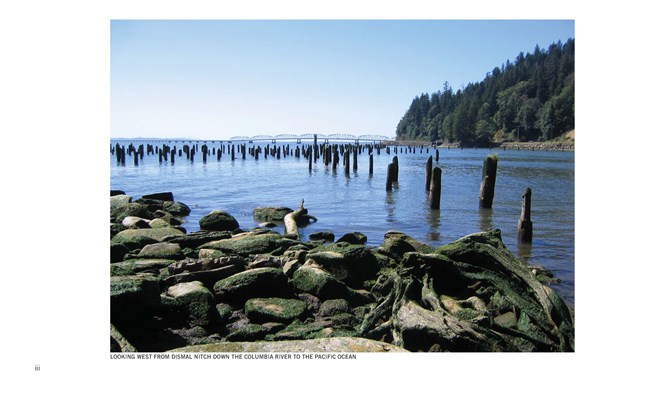|
Rangers at Lewis and Clark National Historical Park are committed to improving accessibility of trails and facilities so they can be enjoyed by all visitors. If you have questions or suggestions about accessibility, please e-mail us, or call us at (503) 861-2471. Service AnimalsQualified service animals trained to assist people with disabilities are allowed in throughout the park and in all park facilities. Service animals must be leashed. For the definition of a service animal please visit the Department of Justice ADA webpage.When it is not obvious what service an animal provides, only limited inquiries are allowed. Staff may ask two questions: (1) is the dog a service animal required because of a disability, and (2) what work or task has the dog been trained to perform. Staff cannot ask about the person's disability, require medical documentation, require a special identification card or training documentation for the dog, or ask that the dog demonstrate its ability to perform the work or task. Dogs whose sole function is to provide comfort or emotional support do not qualify as service animals under the ADA. Accessible MediaThe park has large print brochures, braille brochures, and an audio description of the brochure available for use. Accessible FeaturesThere are scooters and wheelchairs available for loan that can be utilized within the visitor center and to take from the visitor center to the fort replica and to the historic canoe landing. Please inquire about availability at the front desk. Program AccessibilityInterpretive Rangers at Lewis and Clark National Historical Park strive to make programs as accessible to the public as possible through describing their actions and providing tactile elements to their programs. If you would like to request an ASL interpreter for a scheduled program, please e-mail your request and include your program, date and time at least one week in advance of the program. You may also mail your request to ATTN: Interpretation, 92343 Fort Clatsop Rd. Astoria, OR 97103. Please ensure if sending by mail that it is sent in advance of the one week. Access PassThe free Access Pass is available for all U.S. citizens or permanent residents with permanent disabilities. This pass covers admission at more than 2,000 federal recreation sites, including national parks, wildlife refuges, national forests, BLM sites, and more. The Access Pass also provides a discount on some federal facilities and services fees, such as camping. The pass generally does not apply to special recreation permit fees or fees at businesses in the parks. To get your pass, ask at the Fort Clatsop Visitor Center front desk or purchase one online. You’ll be asked to sign a form confirming your eligibility. Medical documentation is not required. 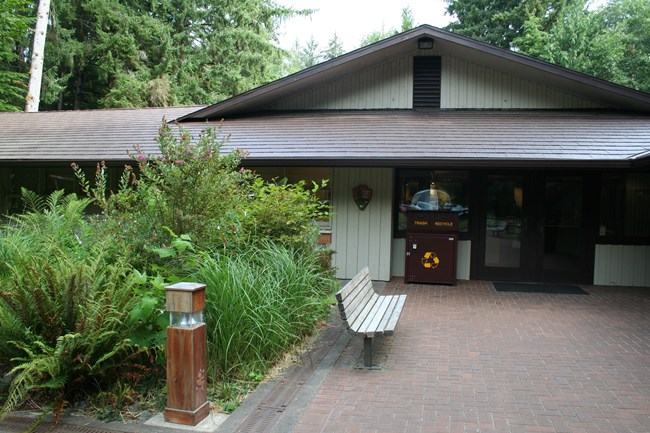
Fort Clatsop Visitor CenterPhysical/mobility access:
Deaf/ loss of hearing access:
Blind/low vision access:
Noises and quiet spaces:
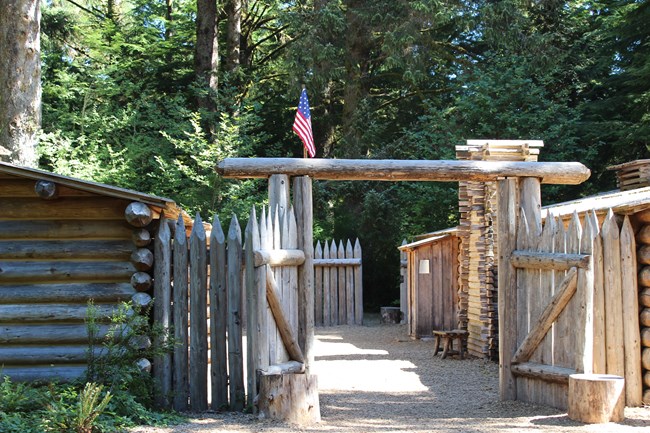
Fort Clatsop ExhibitPhysical/mobility access:
Deaf/ loss of hearing access:
|
Last updated: November 6, 2023

